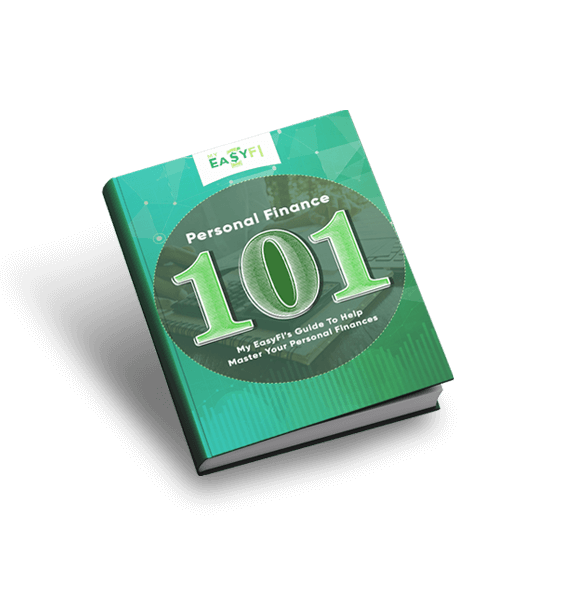If you’re one of those lucky ones having their life together, here is an article about what to do with extra money and use it like a pro.
You know you have money in your pocket, and you feel like spending it, then don’t put it in your pocket. No, we don’t mean you don’t have to stop using cash or credit cards at all; we want you to set aside the ‘extra’ money in your pocket.
Imagine you created a budget plan of $100 groceries, and, thanks to budget deals and discounts, you save $25. Instead of thinking of spending that money right away, it’s time you think of putting it out for something that contributes to your long-term goals. For instance, you can put that money for your emergency fund or retirement plans.
$25 for an emergency fund? You might think we’re kidding, but believe us, it’s one of the best things you’d think whenever you think about what to do with extra money. Many people love saving money, especially in the current pandemic times, but the idea of saving your finances seems farfetched. Even if your bills are paid, and you’ve saved $10, here are a few things to do with that extra money, so you consider their importance.
1. Pay Debt First
Debts are everyone’s burden, and paying them is yet another hassle. Whether you have $50 in debt or $50,000, you must focus on paying the debt, particularly those that have compounded high interest. It’s no surprise that Americans have over $1 trillion in credit card debt.
While the credit card interest rates can average up to 15% and 30% in some cases, you might probably want to pay off starting the highest interest rate. To do that, you can start by setting aside every dime because that’s how you will keep up with your debt-paying goals.
If you’re carrying several debts at a time, see which debt holds the highest interest and create a plan around paying it off first. Even if you haven’t got extra money enough to pay for it, you can dent your savings funds (just once) to kick off the debt-paying journey. As for the other low-interest debts, you don’t worry about what to do with extra money as you’d be paying them off with a breeze.
2. Invest In Business Or Real Estate
You have priorities, and your current financial situation has been stuck, so hear us out. You need to invest the ‘extras’ into something you prefer and think it’s profitable for you. So, what to do with extra money? Start building an investment portfolio that caters to your interests and allocate your windfalls to land here. If you haven’t used up all the advantages from your tax accounts and you’re still working, now might be the best time to jump up at your interest and invest in it.
Apart from that, investing in your home, business, or even another real estate property can be the best bet you can get. You can save the windfalls for the down payment of your property, but you have to be careful with regards to your long-term plans.
3. Save Up In Emergency Fund
Doesn’t it feel great that instant cash of $1000 lands straight into your hands during an emergency? Emergency funds are the best way to keep stacking up the amount for times you have a medical issue, or have a leaking kitchen sink, or if you lost your job. Credit cards can help, but the interest topping up can prove to be a noose tightening slowly around your neck.
The emergency fund is the one thing that can help and support you in critical times. It’s your backup that serves as your safety net on rainy days. If you’ve already taken care of your debt, then your next ‘what to do with extra money’ approach should be directed toward saving in the emergency fund. You can start adding drop by drop to your emergency fund and create goals to build up to your 2 months of expenses. You’ll see how this backup will be feasible for you and your family.
4. Put Something For Easy Retirement
Most people dream of retiring early, having a sound passive income source to help with their future expenses. And to build a future like that, you need to put a halt on your timely gratification and save the money for retirement plans you’ve made.
Think about this: If you put $50 every month for your retirement plans, you will have about $20,000 at the end of 20 years. Instead of spending those $50 on movies and other entertainment activities, consider this aspect of saving.
But if you think that it’s going to eat up your critical needs, you need to understand the basics of personal finance in detail, so to become aware of differentiating between your needs, wants, and savings.
5. Prepare Your Holiday Budget
Holidays are favorites, no doubt, but most people get caught in debt even before the holiday season is over. But spending out of the thrill and excitement will never lead you anywhere, except having your waist deep in debt. Instead of that, make a plan months (yes, months) before the holiday is due. Create a chart and determine how much it would cost for complete expenses from food to gift to travel etc. whatever the cost, divide it between the number of months between the current one and the holiday one, and save that amount from achieving your holiday goals.
If you can do it, there would be so much peace of mind, and you won’t be able to think about what to do with extra money.
6. Stock Up The Pantry
Your pantry is the stock you can eat. It’s your edible emergency fund, which nowadays is a crucial thing for every home due to the pandemic. When you stock up your pantry with several food items from your daily routine, you can use the extra income to stock up before there are shortages, and people suffer for nothing.
Do this: make a list of the food items you and your family eat and include other cleaning items, paper towels, and OTC medicines. You can get these items from wholesalers at lower costs. So the next time you think of what to do with extra money, see if your pantry lacks something or you’re running out of an eatable.
7. Make Some Donations
Let’s be honest; saving money isn’t all about backing up for your future. Sure, you are the creator of your financial security, but let’s not leave others out when securing your foundations. Your small contribution can make a huge difference in someone’s life.
However, you can take up any form of donations and charity to your local church to the orphanage near your house. You can also encourage others to initiate a fund to support underprivileged youth or organize an event for a particular cause. Just make sure you are in line with your tax advisor regarding your tax implication of the charity. Research your way to finding the appropriate program that also reduces taxable income in the process.
8. Entertain Yourself (A Little)
Ok, so it’s not always fun to be smart with money all the time, and play in the safe zone might feel a bit boring; you can have a little bit fun with the extra money you have. Set aside some amount to enjoy life once in a while. Make sure you have it coupled with a plan like buying a new pair of shoes or going on a vacation.
You can set aside all the money you want, but then again, your emergency fund and other backup sources shouldn’t suffer.
9. Save It For Future Use
The future is always on the mind when you’re thinking about bringing stability to your finances. If those $20 notes don’t look good in your pocket, go ahead and invest in a long-term goal. Every dime you add will make a difference in your savings. From weddings to college tuition fees, you may establish funds that help you gain the maximum tax advantage.
Here, pay attention to all the options that favor your security in the future and keep track of it all. You can either use some help from a financial advisor or use a personal finance app to control your future.
In conclusion, there will be numerous factors you won’t be able to control, but you can manage the way you address the factors introducing changes in your life. There would be times when you won’t have a penny, but even a small amount as much as $10 can make a difference; remember that!

